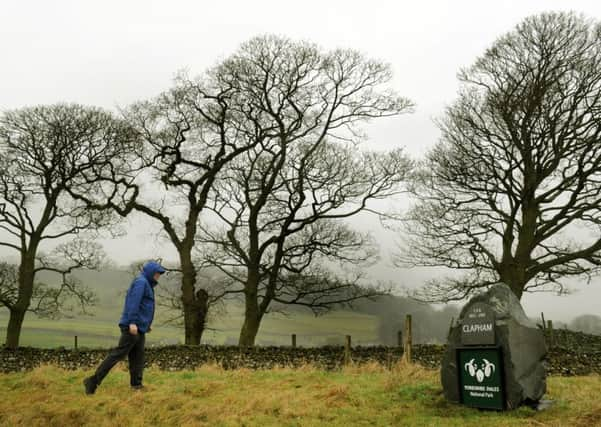Lakeside amble is Yorkshire explorer's fine legacy


Clapham in Yorkshire is more to my taste. Five trains stop a day in any one direction and you can hear the silence as soon as you walk out of the station and realise you are still a long mile’s walk away from the main part of the village.
For years I have been going there to do one of my favourite walks. It goes up the valley from the top of the town, past a cascading waterfall and above a lake amongst some old trees before emerging into a limestone valley and heading up towards Ingleborough.
Advertisement
Hide AdAdvertisement
Hide AdSome of the trees along the path look a touch out of place. It has taken me more than 20 years to realise that there’s a reason for this. They were brought to the valley by one of the greatest plant collectors and explorers Britain has ever produced. Reginald Farrer is one of those Yorkshire characters who deserves to be much better known.
He lived a fascinating life. He started out in a small isolated village with a speech impediment. This might have limited the ambition of some people. It didn’t for Reginald. He got his childhood pleasure by walking the local hills and valleys, looking carefully at the rare plants that grew in them and then reading every book he could find on the subject.
This hobby turned into a serious interest. He studied at Oxford, travelled to Japan to collect rare plants, wrote a popular book about rock gardens, set up a successful nursery business, and died on a remote hillside in Upper Burma trying to find interesting new varieties of plants.
Along the way he became a Buddhist and collected specimens everywhere he could from the Swiss Alps to the Sri Lankan jungle.
Advertisement
Hide AdAdvertisement
Hide AdHis books still come across as fresh and interesting. Provided that you don’t mind rather a lot of obscure Latin names and the occasional badly dated attitude. To give an example, this is his take on how Clapham in Yorkshire acquired its lake and the waterfall: “One of my ancestors was lured by degrees, on the first pretence of making a few fish pools, into so damming up the stream at the valley’s exit as to make the whole glen one broad long lake. A noble work: and when the bills came in , he was filled with shame and terror, and put them all in the fire. So that posterity has no notion of his lavishness.”
Posterity does have a clearer idea of Reginald’s own extravagances. His letters home are full of requests for money to cover the cost of his plant hunting, his taste for travel and the cost of improving the grounds of the family home or expanding his nursery business. Fortunately several of his books sold well and helped cover some of the costs.
Less happily his nationally important nursery business in Clapham thrived in his lifetime but failed afterwards. Customers appear to have thoroughly enjoyed searching through their catalogues for the latest discoveries of an adventurous plant hunter that enough of them parted with good money for prize specimens. But when Reginald died at 40 on a remote Burmese hillside the business lost his drive. It dwindled and closed.
We have though been left with a great walk alongside his ancestor’s expensive lake, the chance to spot a few of his prized specimens and some fantastic books. I particularly like his guide to what could be seen in Clapham 100 years ago, called ‘In a Yorkshire Garden’.
Advertisement
Hide AdAdvertisement
Hide AdIn it he says: “I think a true gardener is a lover of his flowers, not a critic of them. I think the true gardener is the reverent servant of Nature, not her truculent, wife beating master. I think the true gardener, the older he grows, should more and more develop a humble, grateful and uncertain spirit, cocksure of nothing except the universality of beauty.”
A pretty fine summary of a life well lived.